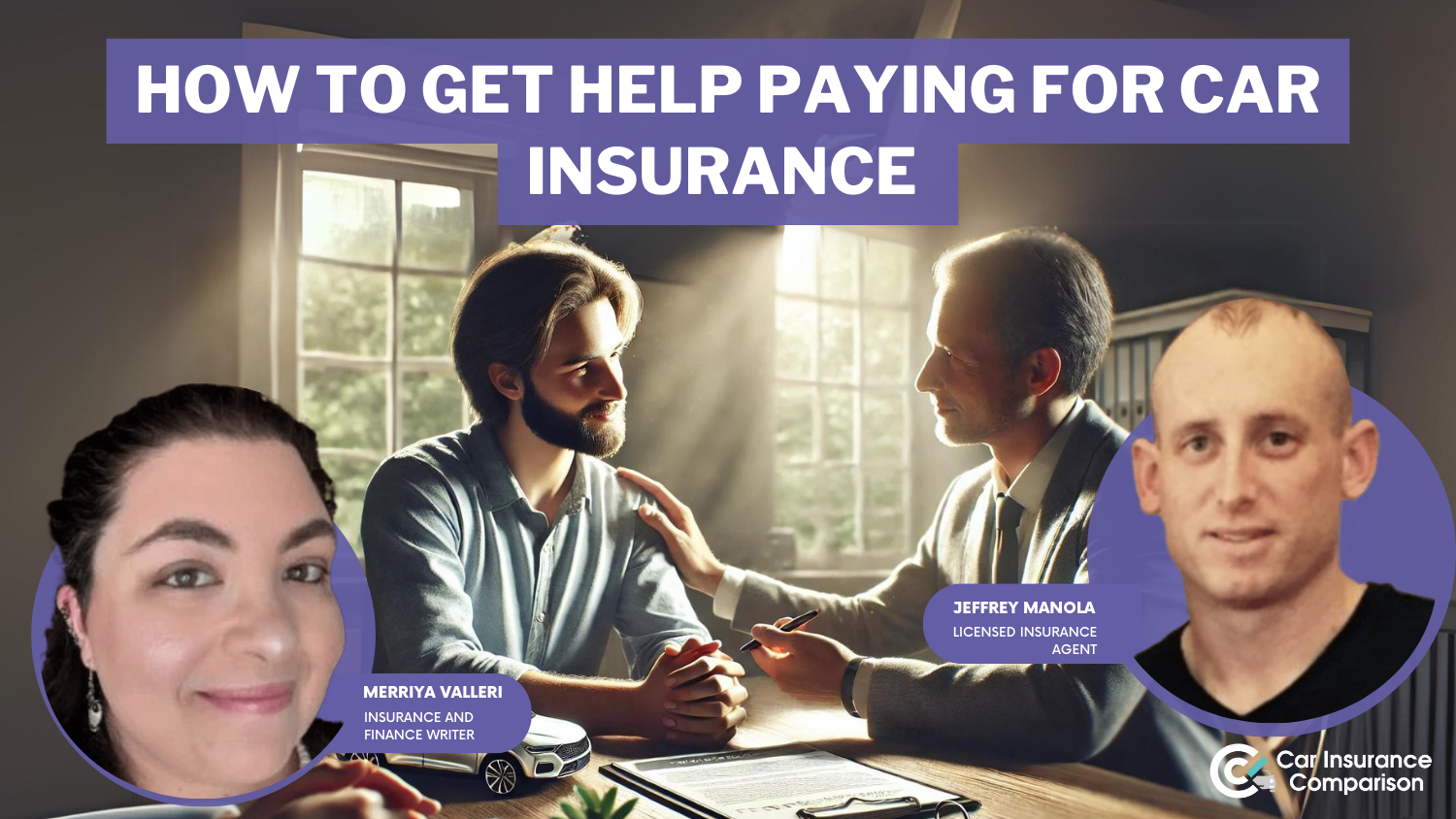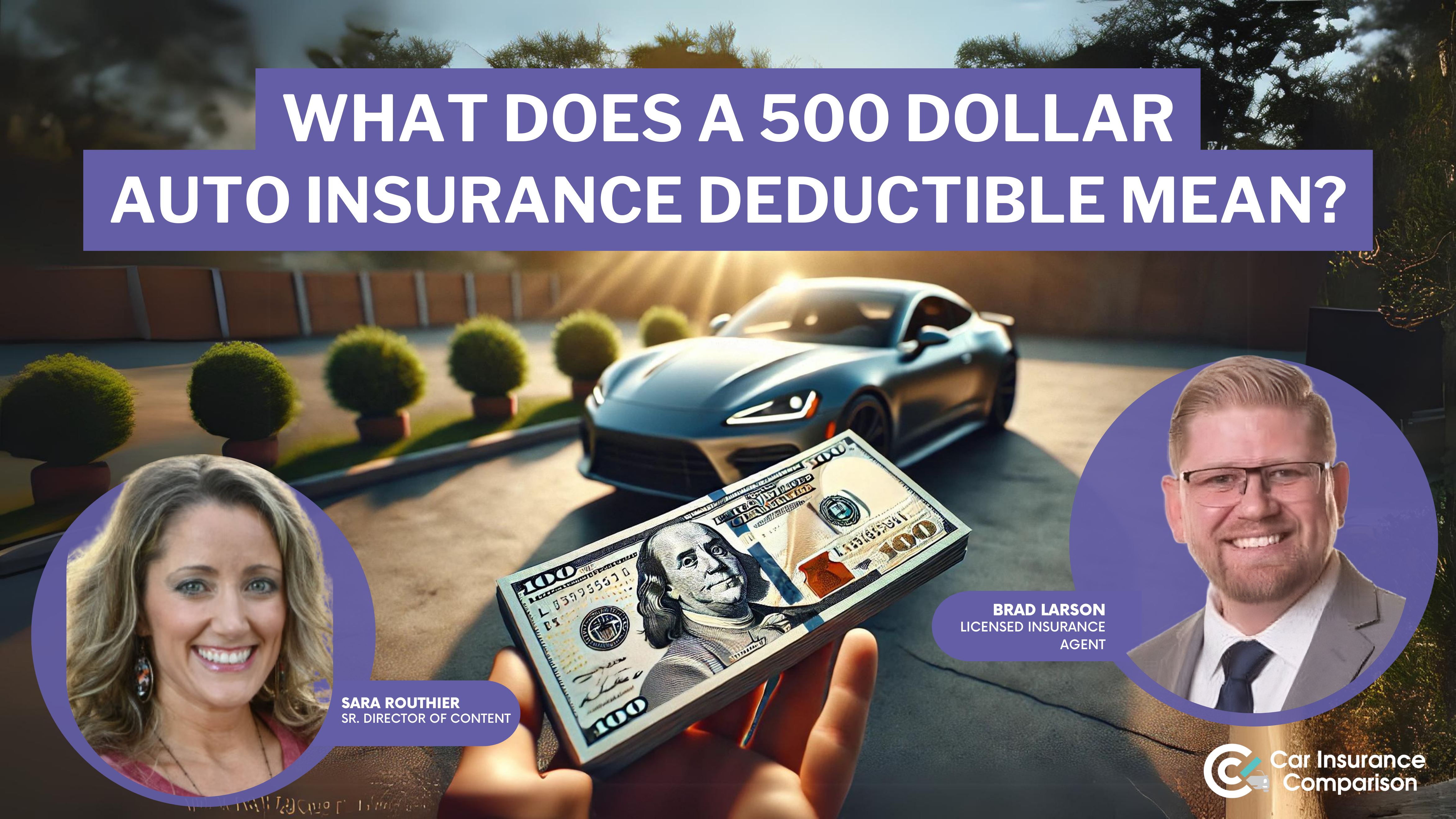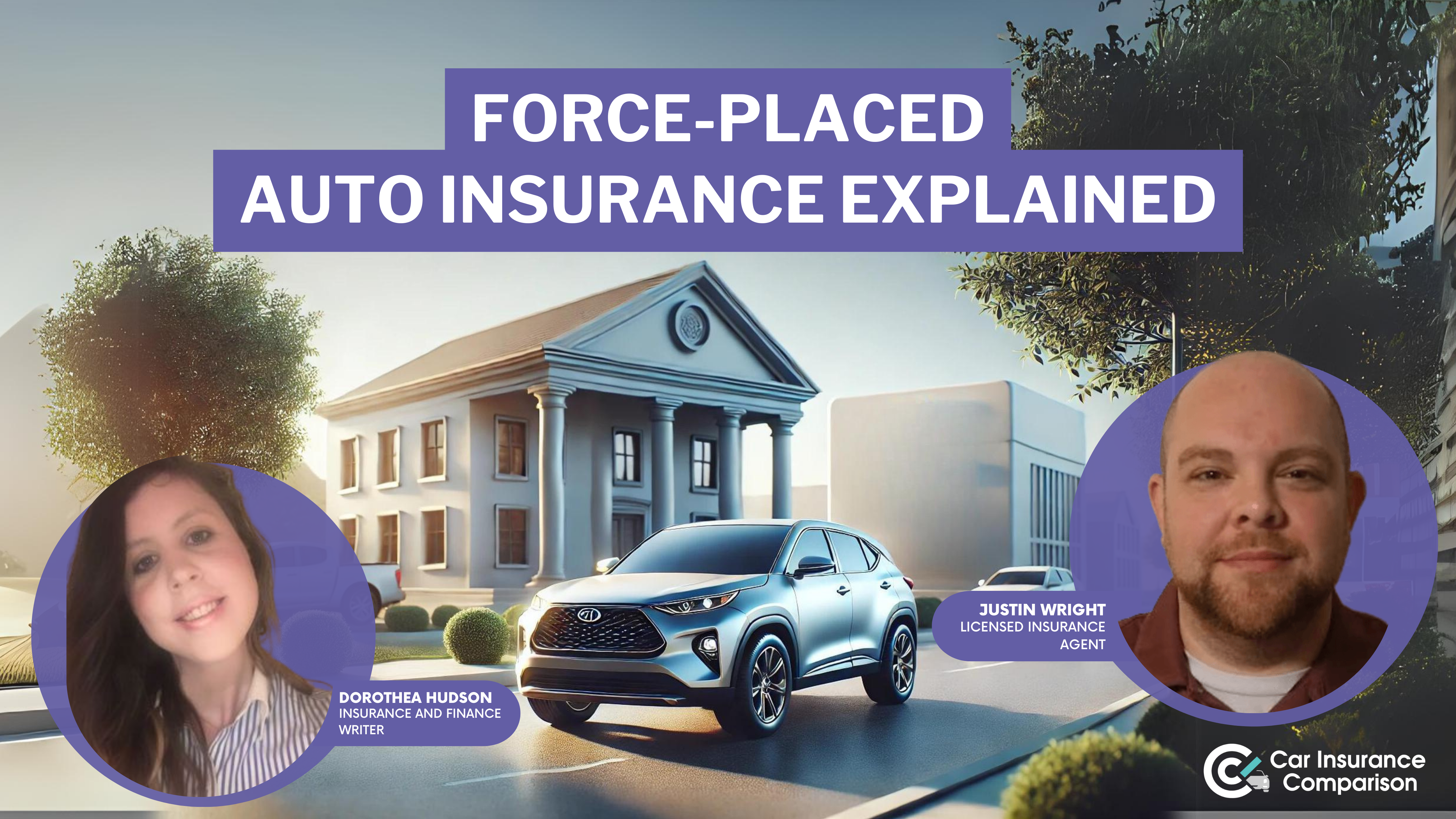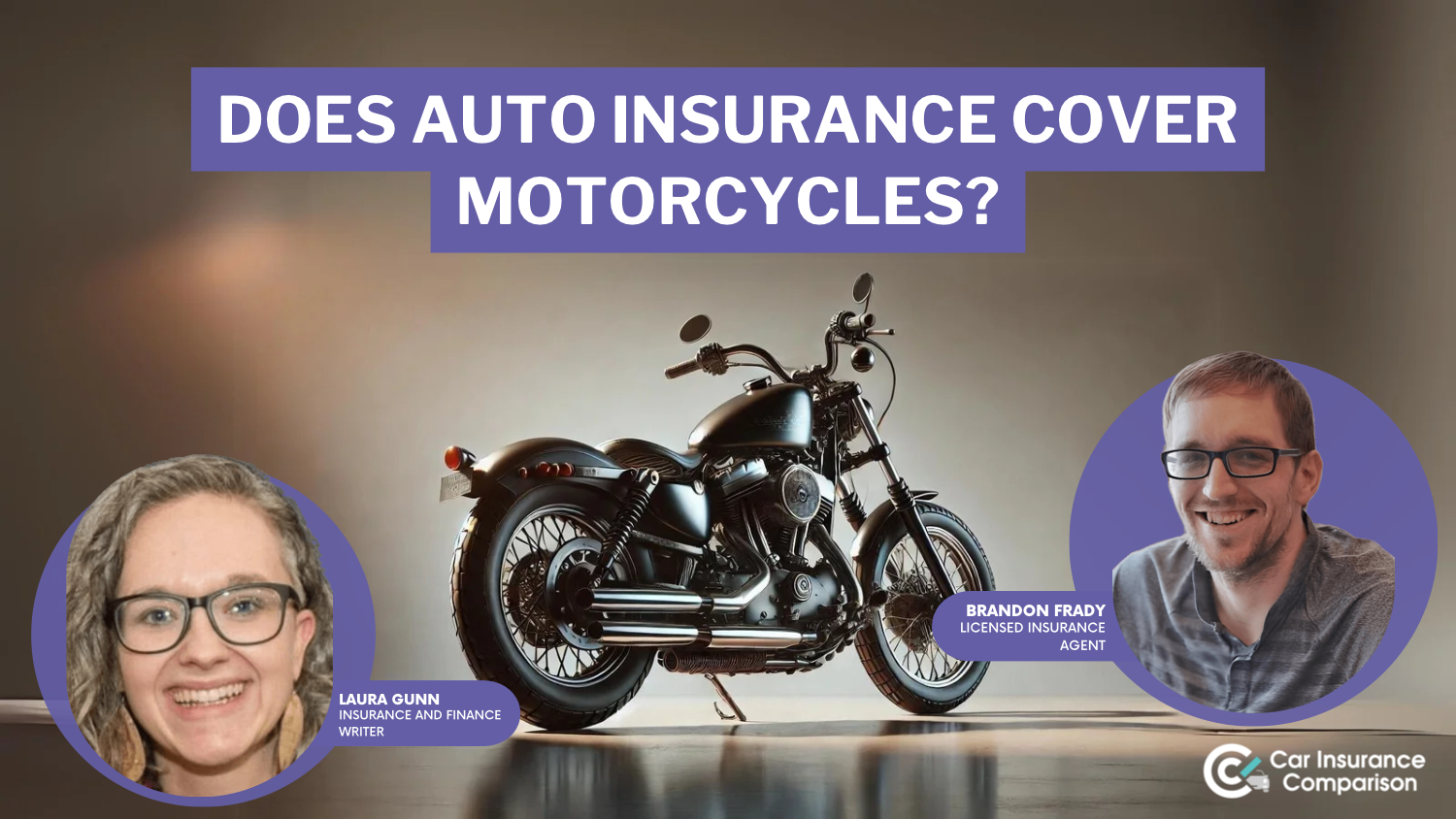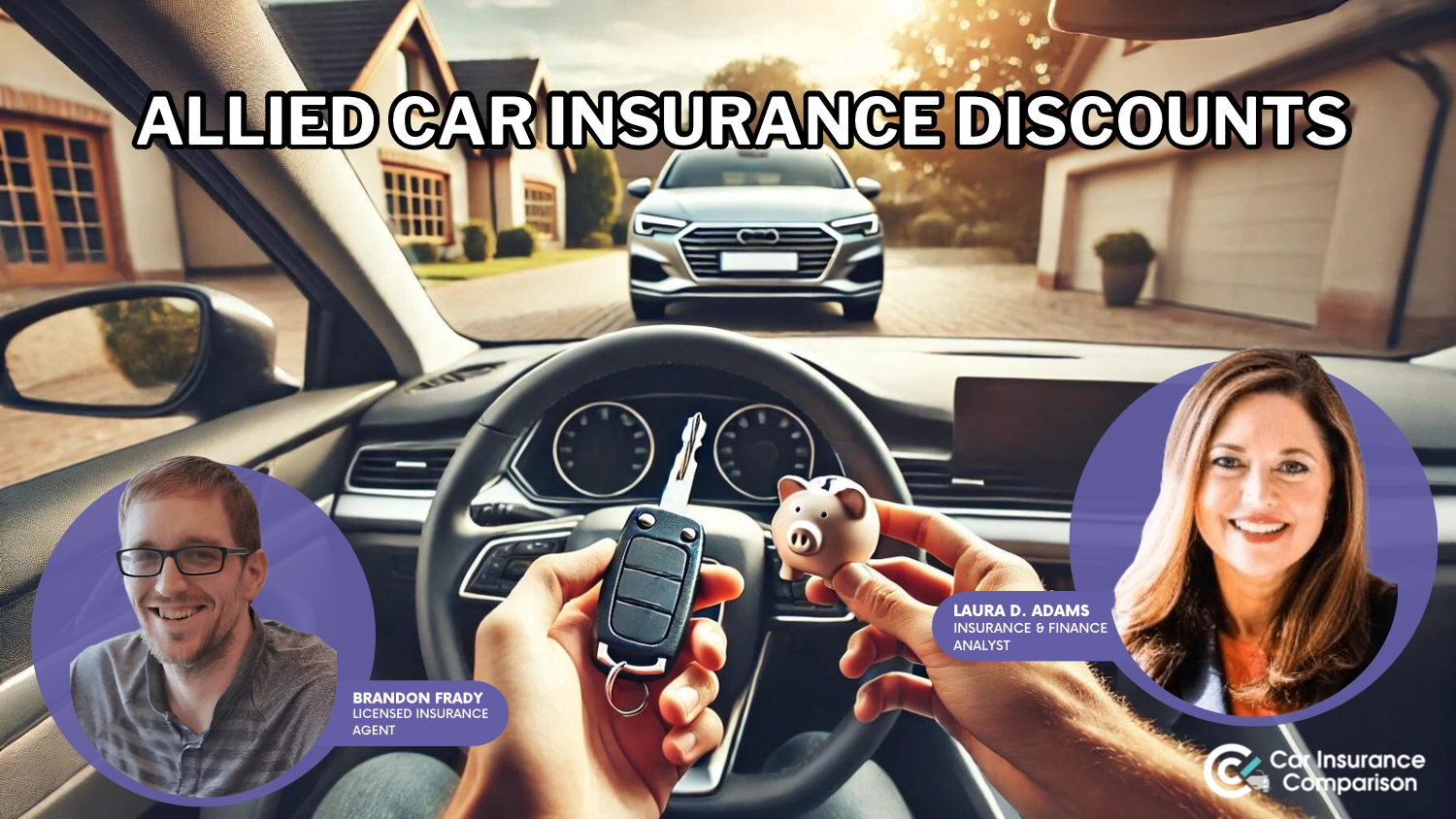How do you handle car insurance when selling a car?
You still need car insurance when selling a car. After the car is sold, you can legally drop coverage- but should you? Read on to find out how to avoid lapses in coverage and keep your rates low.
Read more Secured with SHA-256 Encryption





Table of Contents
Table of Contents


Feature Writer
Chris Tepedino is a feature writer that has written extensively about car insurance for numerous websites. He has a college degree in communication from the University of Tennessee and has experience reporting, researching investigative pieces, and crafting detailed, data-driven features. His works have been featured on CB Blog Nation, Healing Law, WIBW Kansas, and Cinncinati.com. He has been a...
Chris Tepedino


Licensed Insurance Agent
Scott W Johnson is an independent insurance agent in California. Principal Broker and founder of Marindependent Insurance Services, Scott brings over 25 years of experience to his clients. His Five President’s Council awards prove he uses all he learned at Avocet, Sprint Nextel, and Farmers Insurance to the benefit of his clients. Scott quickly grasped the unique insurance requirements of his...
Scott W. Johnson
Updated February 2024
- Keep car insurance on your vehicle while selling it in case it gets damaged
- Once you sell the car, you can drop coverage or transfer it to a new vehicle
- Consider non-owner insurance if you’re not going to buy another car but may still drive occasionally
When selling a car, insurance becomes a difficult question; you might not know what to do with your car insurance. It can be tricky because you don’t want to pay for expensive coverage if it’s not necessary.
However, dropping coverage too soon leads to significant out-of-pocket expenses if your car gets damaged before you sell it. In addition, driving without insurance will mean higher rates when you get coverage again.
If you’re going to buy another car, keep your car insurance coverage or choose a non-owner policy to avoid higher rates. There’s no need to cancel your policy outright.
Keep reading to learn what to do with car insurance when selling a car and when you can drop coverage.
Do you need car insurance when selling a car?
Suppose you put your car up for sale. Do you need proof of insurance to sell a car? Do you need to keep car insurance active, or can you drop coverage to save money?
It may be tempting to cancel insurance, but you could drive the car for short trips or test drives. You need car insurance if your car is still legal to drive. Most states require at least a minimum amount of car insurance on registered vehicles. You probably don’t need coverage if you’ve unregistered your vehicle, but you can’t let buyers test drive it.
In addition, it makes sense to protect your car financially. Even if you’re getting rid of your vehicle, insurance keeps you from paying for costly repairs if it gets damaged.
For example, liability car insurance coverage pays for property damage and bodily injuries to others if a driver causes a wreck while test driving your vehicle. On the other hand, collision pays for damages to your car if you get in an accident.
Comprehensive pays for damages to your for-sale vehicle unrelated to an accident. So, comprehensive coverage kicks in if a tree limb falls on the car, it gets stolen, or vandalized.
Keeping full coverage, including liability, collision, and comprehensive, on your vehicle while selling it is good. Then, you’re not left paying out of pocket for repairs if it gets damaged before you sell it.
So while it might be tempting to reduce or drop car insurance altogether, it’s in your best interest to keep coverage until your car sells. (For more information, read our “Tips for Selling Car Insurance“).
Free Insurance Comparison
Compare Quotes From Top Companies and Save
Secured with SHA-256 Encryption
When can you cancel car insurance after selling a car?
Once you’ve sold your car, you have to complete a bill of sale. In addition, some states require you to file a Notice of Release of Liability to let your state know that you’re no longer responsible for that vehicle.
At that point, you can cancel car insurance coverage for that vehicle. However, if you forget to cancel coverage or don’t file the proper paperwork, your insurance might still kick in if the car is in an accident.
The DMV isn’t responsible for informing the insurance company your car sold — you’re responsible for that, or your insurer will assume you still want coverage on the vehicle.
Knowing how to cancel a car insurance policy is important. Of course, every company has its own cancellation policy, but it’s a relatively straightforward process.
Most insurance companies allow you to cancel coverage at any time, for any reason. However, some companies charge a fee for ending your policy early.
First, find out when your policy expires. If you’re not in a hurry to sell your car, you might consider selling it around the time your policy ends, especially if your insurer charges a cancellation fee.
Next, follow your insurance company’s cancellation requirements. Some companies allow you to cancel your policy online or over the phone, while other insurance companies may require you to send a written request.
Finally, follow up once you’ve completed the cancellation process. Find out if you’re entitled to a refund if you paid for your policy upfront.
Should you keep car insurance after selling a car?
Whether or not you should keep car insurance depends on your personal situation. For example, if you’re moving to an area where you’ll use public transportation to get around, you may not need car insurance.
However, if you’re buying another vehicle, you can keep your coverage and add the new car to your policy. There’s no need to cancel your policy when you can simply add a new car to your current policy.
Keep your coverage anyway if you’ve sold your car but haven’t found a new one yet. You can drop coverage down to the minimum requirements until you find your new vehicle.
If you’re not getting a new car but may still drive, non-owner car insurance may be the way to go. A non-owner policy allows you to drive a vehicle that doesn’t belong to you legally. While coverage is typically minimal, it will enable you to show continuous coverage and offers some protection.
Keeping car insurance is a good idea for multiple reasons. You may drive a car at some point, whether you borrow a friend’s car or rent one.
Additionally, a lapse in coverage means higher rates when you get insurance again. Car insurance companies like to see continuous coverage to show you are a responsible driver.
You’ll also lose continuous coverage and loyalty discounts by canceling car insurance. These discounts offer significant savings, and it’ll take years to get them back.
Car Insurance When Selling a Car: The Bottom Line
When selling a car, keep your car insurance. Full coverage pays for damages from an accident, but it also protects your vehicle from being stolen, vandalized, and damages unrelated to an accident like floods and falling tree limbs. You’ll also want to ensure your car is legally driveable since a new buyer will want to do a test drive.
Also, if your car is still registered, you must have insurance since most states require car insurance on registered vehicles. According to the Insurance Information Institute, driving without insurance leads to fines, a driver’s license suspension, and an impounded car.
Once your car sells, you can drop coverage. Each car insurance company has its own cancellation policy and requirements, so contact your company to learn what steps you need to follow. You may even get a refund if you paid for coverage in advance.
However, canceling car insurance might not be your best option. If you’re buying a new car, keep your policy and just add the new vehicle.
If you’re not buying another car, consider a non-owner policy that still allows you to drive when the occasion arises, such as borrowing a friend’s car or renting a car.
Keeping some form of car insurance helps you avoid an expensive coverage lapse. In addition, you’ll keep significant discounts like continuous coverage and car insurance loyalty rewards programs.
Free Insurance Comparison
Compare Quotes From Top Companies and Save
Secured with SHA-256 Encryption
Case Studies: Handling Car Insurance When Selling a Car
Case Study 1: Transferring Ownership
John has sold his car to a buyer and needs to handle the insurance appropriately. He contacts his insurance company to inform them about the sale and the transfer of ownership. John provides the necessary details, such as the buyer’s information and the date of the sale. His insurance company advises him on the steps to cancel his existing policy or transfer it to another vehicle he owns.
Case Study 2: Cancellation and Refunds
Sarah has sold her car and wants to cancel her insurance policy. She contacts her insurance company and informs them about the sale. Sarah provides the necessary details and requests the cancellation of her policy. Her insurance company calculates any applicable refunds based on the remaining term of the policy and processes the refund accordingly.
Case Study 3: Pro-rated Coverage
Mike is in the process of selling his car but hasn’t found a buyer yet. He contacts his insurance company to discuss his options. His insurance company advises him to keep the car insured until the sale is finalized to maintain coverage. Mike ensures the insurance company adjusts the coverage to reflect the reduced usage and provides the necessary information about the pending sale.
Case Study 4: Buyer’s Insurance Coverage
Samantha has sold her car, and the buyer wants to drive it away immediately. The buyer is responsible for obtaining their insurance coverage for the vehicle. Samantha contacts her insurance company to inform them about the sale and the transfer of ownership.
Her insurance company advises her to provide the buyer with any necessary documentation, such as the vehicle title, to facilitate their insurance coverage process.
Frequently Asked Questions
Do I need car insurance when selling a car?
Yes, car insurance is still required when selling a car.
When can I cancel car insurance after selling a car?
You can cancel car insurance after selling the car and completing the necessary paperwork.
Should I keep car insurance after selling a car?
It depends on your situation, but keeping some form of car insurance is beneficial for various reasons.
Can I drive the car for test drives without insurance?
No, you need car insurance to legally allow test drives.
What happens if I drive without insurance while selling a car?
Driving without insurance can result in fines, license suspension, and an impounded car.
Get a FREE Quote in Minutes
Insurance rates change constantly — we help you stay ahead by making it easy to compare top options and save.


